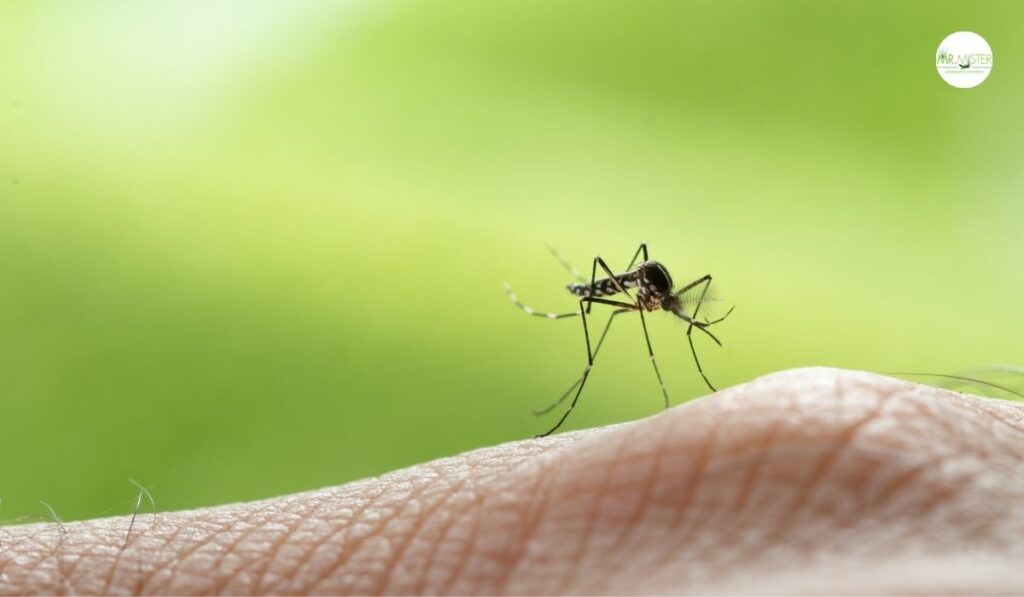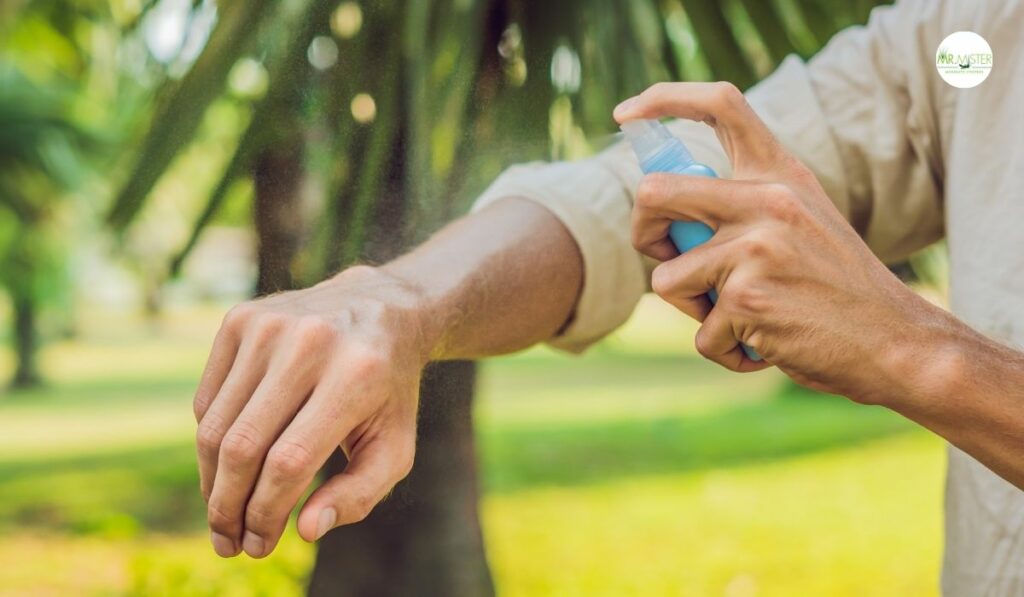Indoor Mosquito Control: Effective Strategies for a Pest-Free Home
Mosquitoes are not only annoying pests but also carriers of various diseases like malaria, dengue fever, and Zika virus.
Keeping them out of your home is essential for maintaining a healthy and comfortable living environment.
While outdoor mosquito control is often emphasized, indoor mosquito control is equally important, especially considering that mosquitoes can breed and thrive inside your home.
In this article, we will explore practical strategies for indoor mosquito control to help you achieve a pest-free home environment.
Identify and Eliminate Breeding Sites:
Mosquitoes breed in stagnant water, so the first step in indoor mosquito control is to identify and eliminate potential breeding sites. Common breeding grounds include:
- Flowerpots: Check for standing water in saucers under potted plants.
- Drains: Ensure that drains are clear of debris and water is flowing freely.
- Pet Bowls: Change water frequently in pet bowls to prevent mosquito breeding.
- Unused Containers: Dispose of any containers that can collect water, such as buckets, cans, and bottles. Regularly inspect your home for any sources of standing water and take measures to eliminate them to disrupt the mosquito breeding cycle.
Install Screens and Seal Entry Points:
Install screens on windows and doors to prevent mosquitoes from entering your home.
Make sure the screens are free of holes or tears that mosquitoes can slip through.
Additionally, seal any gaps or cracks around windows, doors, and other entry points to prevent mosquitoes from finding their way inside.
Use Mosquito Nets:
Mosquito nets are a simple yet effective way to protect yourself and your family from mosquito bites, especially while sleeping.
Install mosquito nets over beds, cribs, and other sleeping areas to create a barrier between you and the mosquitoes.
Utilize Mosquito Repellents:
Indoor mosquito repellents can help deter mosquitoes from entering your home and biting you.
There are various types of repellents available, including:
- Electric Mosquito Repellents: These devices emit ultrasonic waves or chemicals to repel mosquitoes.
- Citronella Candles: Burning citronella candles indoors can help repel mosquitoes with their strong scent.
- Essential Oils: Natural oils like lavender, eucalyptus, and peppermint have mosquito-repelling properties. Dilute them with water and spray them around your home, or use them in diffusers.
Maintain Cleanliness:
Keeping your home clean and tidy can also help in indoor mosquito control.
Mosquitoes are attracted to odors and can breed in dirty and cluttered areas.
Follow these tips to maintain cleanliness:
- Dispose of garbage properly and regularly.
- Keep kitchen and bathroom areas dry to prevent water accumulation.
- Vacuum and sweep floors regularly to remove crumbs and debris that can attract mosquitoes.
- Wash pet bedding frequently to eliminate potential mosquito breeding sites.
Consider Mosquito Traps:
Mosquito traps can be effective in reducing indoor mosquito populations.
These traps use various methods to attract and capture mosquitoes, such as UV light, heat, and carbon dioxide.
Place mosquito traps in areas where mosquitoes are most active, such as near windows or entry points.
Use Mosquito-Repellent Plants:
Incorporating mosquito-repellent plants into your indoor garden or landscaping can help naturally deter mosquitoes.
Some plants known for their mosquito-repelling properties include citronella, basil, mint, lavender, and marigolds.
Place these plants near windows, doors, and other entry points to help keep mosquitoes at bay.
Employ Natural Predators:
Introducing natural predators of mosquitoes into your indoor environment can help control mosquito populations.
Certain species of fish, such as Gambusia affinis (mosquito fish), feed on mosquito larvae and can be kept in indoor ponds or water features to prevent mosquito breeding.
Additionally, attracting insect-eating birds like swallows or bats to your outdoor space can help reduce mosquito populations around your home.
Opt for Mosquito-Proof Clothing and Bedding:
Another effective way to protect yourself from indoor mosquitoes is to wear mosquito-proof clothing and use mosquito-proof bedding.
Clothing treated with permethrin or other insect repellents can provide added protection against mosquito bites, especially when spending time outdoors or in areas with high mosquito activity.
Similarly, mosquito-proof bedding, such as bed nets treated with insecticides, can create a barrier between you and mosquitoes while sleeping.
Regularly Maintain Outdoor Areas:
While the focus of this article is on indoor mosquito control, it’s essential to recognize outdoor areas surrounding your home.
Mosquitoes can quickly enter your home from outdoor breeding grounds if left unchecked.
To prevent this, regularly maintain outdoor regions by:
- Removing stagnant water from flower pots, bird baths, and other outdoor containers.
- Cleaning gutters and downspouts to ensure proper drainage.
- Trimming vegetation and bushes to reduce harborage areas for mosquitoes.
- Treating standing water sources, such as ponds or rain barrels, with larvicides to prevent mosquito breeding.
Consider Professional Pest Control Services:
If you need help to control indoor mosquito populations despite implementing various strategies, consider seeking professional pest control services.
Pest control experts can conduct a thorough inspection of your home, identify mosquito breeding sites, and recommend tailored solutions to eliminate mosquitoes effectively.
They may also offer ongoing maintenance programs to ensure long-term mosquito control.
Educate Yourself and Others:
Lastly, education plays a crucial role in indoor mosquito control.
Take the time to learn about mosquito biology, behavior, and effective control methods.
Share this knowledge with your family members, friends, and neighbors to collectively combat indoor mosquito infestations and reduce the risk of mosquito-borne diseases in your community.
Conclusion
Indoor mosquito control is essential for maintaining a comfortable and healthy home environment.
By implementing the strategies outlined in this article, you can effectively reduce mosquito populations indoors and enjoy a pest-free living space.
Remember to inspect your home for potential breeding sites regularly, install screens on windows and doors, use mosquito nets and repellents, maintain cleanliness, and consider utilizing mosquito traps for added protection.
With these measures in place, you can significantly reduce the risk of mosquito-borne diseases and enjoy a more enjoyable living space year-round.
For further assistance with professional pest control services or to schedule a consultation, please visit us at Mr. Mister Mosquito Control.
With expert guidance and tailored solutions, you can take proactive steps toward achieving long-term indoor mosquito control and creating a healthier environment for you and your family.
FAQs
Why is indoor mosquito control important?
Indoor mosquito control is crucial because mosquitoes not only pose a nuisance but also carry diseases like malaria, dengue fever, and Zika virus. Preventing their entry into your home helps maintain a healthy living environment.
How can I identify and eliminate mosquito breeding sites indoors?
Mosquitoes breed in stagnant water, so it’s essential to regularly check for and eliminate standing water in places like flowerpots, drains, pet bowls, and unused containers. Disrupting their breeding cycle is critical to controlling indoor mosquito populations.
What are some practical ways to prevent mosquitoes from entering my home?
Installing screens on windows and doors, sealing entry points, and using mosquito nets over beds are effective measures to prevent mosquitoes from entering your home.
What types of indoor mosquito repellents are available?
Indoor mosquito repellents include electric devices emitting ultrasonic waves or chemicals, citronella candles, and essential oils like lavender, eucalyptus, and peppermint. These repellents help deter mosquitoes from entering your home.
How does cleanliness help in indoor mosquito control?
Mosquitoes are attracted to odors and can breed in dirty and cluttered areas. Maintaining cleanliness by disposing of garbage properly, keeping areas dry, and regularly cleaning floors and pet bedding can help deter mosquitoes.
Are mosquito traps effective for indoor mosquito control?
Yes, mosquito traps can be effective in reducing indoor mosquito populations. They use various methods to attract and capture mosquitoes, such as UV light, heat, and carbon dioxide.
Which mosquito-repellent plants can I incorporate indoors?
Plants like citronella, basil, mint, lavender, and marigolds are known for their mosquito-repelling properties. Placing these plants near windows and doors can help naturally deter mosquitoes indoors.
How can natural predators help in indoor mosquito control?
Introducing natural predators like mosquito fish or attracting insect-eating birds to your indoor environment can help control mosquito populations by feeding on mosquito larvae or adult mosquitoes.
What are mosquito-proof clothing and bedding, and how do they work?
Mosquito-proof clothing is treated with insect repellents like permethrin to provide added protection against mosquito bites. Similarly, mosquito-proof bedding, such as bed nets treated with insecticides, creates a barrier between you and mosquitoes while sleeping.
When should I consider professional pest control services for indoor mosquito control?
If you need help to control indoor mosquito populations despite implementing various strategies, consider seeking professional pest control services. They can conduct inspections, identify breeding sites, and recommend tailored solutions for effective mosquito control.
Can indoor mosquito control methods also help prevent other pests?
While the focus is on mosquitoes, many of the strategies mentioned, such as maintaining cleanliness and sealing entry points, can also help prevent other pests like flies and ants from entering your home.
Are there any DIY remedies for indoor mosquito control?
In addition to the mentioned strategies, DIY remedies like homemade mosquito repellent sprays using essential oils or vinegar and garlic-based repellent sprays can also be effective in deterring mosquitoes indoors.
* Schedule a Free Mosquito Control Consultation – 404-941-0720 *
* Guaranteed Results * 100% Biodegradable * Locally Owned







